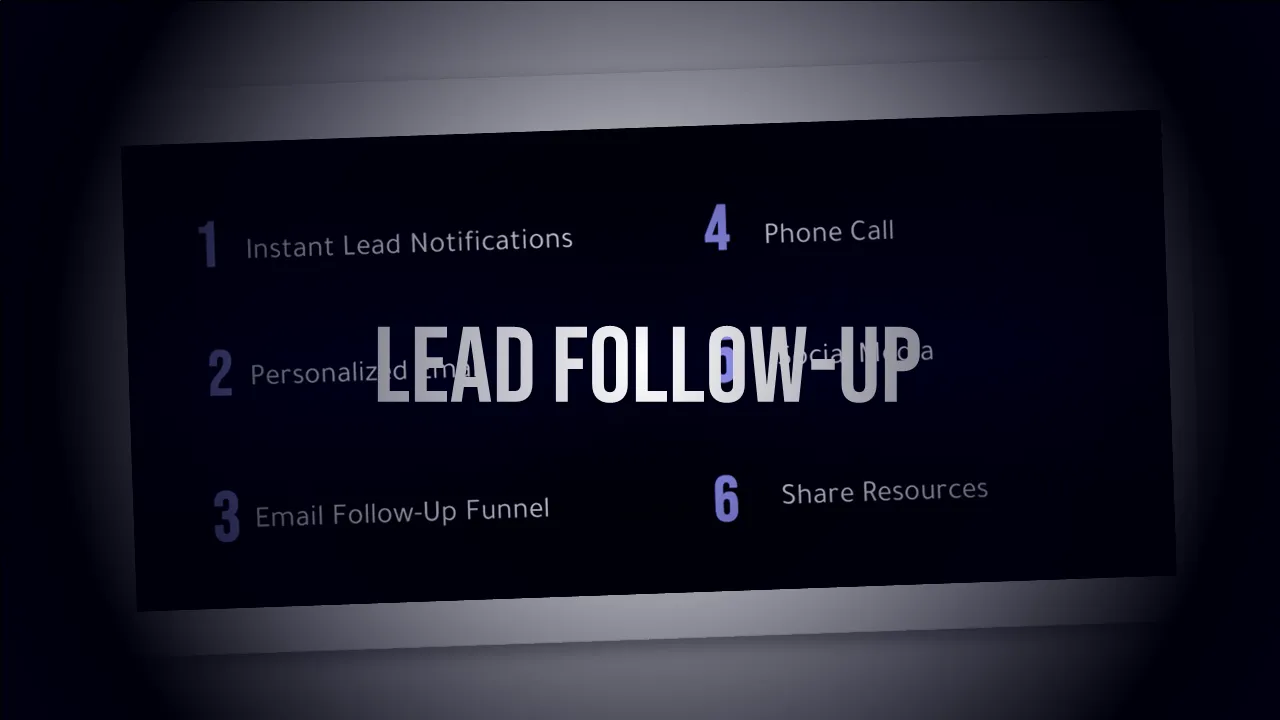Social Media Lead Generation Mistakes to Avoid
Establishing a business presence on social media can be both exhilarating and daunting. The rapid speed of sites like Instagram, LinkedIn, and TikTok creates the impression that leads are constantly one post away. There are more than five billion social media users worldwide. With so many, no wonder 68 percent of marketers indicate that social media marketing assists in generating leads.
Now, when pursuing leads, there's the urge to pursue trends, produce content constantly, and message prospective customers in large quantities. But in the process, most businesses land in traps that destroy their audience and sales.
If you desire to convert followers into actual buyers, it's not about what you do; it's about what you don't do. Having said that, let us take a look at a few blunders you need to steer clear of at any cost while pursuing leads on social media.
1: Neglecting the Power of Actual Conversations
Companies tend to post incessantly about promotions but never bother to engage with followers on a personal level. Commenting back with a generic emoji or not responding to DMs because they don't look promising can paint a negative picture.
While pursuing leads, you must regard each experience as part of a broader relationship. Ask questions, reply intelligently, and do not utilize every response to promote a product.
Leads are more likely to convert when they feel heard, not when they feel like another name in a list.
2: Spamming and Overposting Your Audience
Posting regularly is acceptable. Obsessive posting is not. When your social media stream turns into a deluge of the same old stuff, people zone you out. Overposting is also a desperate sign, which never impresses potential clients.
Now, social media algorithms do not care when your content gets to the people. Indeed, the algorithms will get more people your way. But the same algorithms might cut your reach if people begin muting or unfollowing you, and so you require balance.
There's also a thin line between follow-up and spam. If the person doesn't respond to your message or comment, don't keep poking them. You might perceive persistence as drive, but to the user, it comes across as invasive and pushy.
3: Too Much Dependence on Vanity Metrics
Follower numbers, likes, and shares can be evidence that you're getting it right. But these figures don't always translate into leads. Some creators with big audiences still can't sell stuff or get clients booked. Pursuing likes might cause you to post content that's fun but doesn't convert.
Rather, concentrate on quality discussions, saved posts, and the messages actually received by your inbox. These are the most important metrics. Don't base your whole strategy on what looks good at first glance. Base it on what builds trust and value.
4: Becoming Addicted to Social Media
Many people trying to grow a business online don’t realize when they cross the line from dedicated to addicted. The algorithm is designed to keep you engaged. Before you know it, you’re online all the time, hoping that one more post or story will finally bring in the leads you want.
This habit not only wastes your time; it also does damage to your mental well-being. Research indicates that social media addiction is closely related to depression, anxiety, and burnout. If you're a young adult who's always comparing yourself to others, you may be more at risk. According to TruLaw, over time this can give rise to some very serious mental health problems.
Most individuals nowadays qualify for social media harm lawsuit claims for the same reasons. Such legal cases as the social media addiction lawsuits are opening up the eyes on how deeply these sites can affect one's well-being.
5: Faking Authenticity for Engagement
Audiences today are sharp. They can tell when you’re being real and when you’re putting on a show. Posting content that pretends to be raw or emotional, just for the sake of engagement, often backfires. It builds mistrust and pushes leads away instead of pulling them in.
Authentic connection isn't about copying what the influencers do. It's about being authentic in who you are, what your brand is about, and what type of individuals you desire to serve. You don't have to reveal your secrets. You just need to show up the way you live your values and the way you are.
6: Using Too Many Sales Gimmicks
Another error is relying on sales, discounts, special offers, and sensational copy to drive conversions. Those tricks may generate some short-term sales, but they don't assist you in creating relationships. When every post says "Act fast" or "Buy now," people begin to tune out.
Leads are more likely to convert when they have confidence in your product or service. Which means leveraging your content to educate, inspire, and fix actual problems. Trust is built over time, and there's no amount of flashy wording that will speed it up.
7: Not Adapting to the Platform's Culture
Every platform speaks its own language and behaves differently. Something that succeeds on LinkedIn may fail on Instagram. The biggest marketing mistake is reposting the same piece of content on all platforms without switching the tone or style.
Humans can sense when your post does not belong. It is lazy and unnatural. When you do not take the time to understand what each platform appreciates, you are missing the opportunity to connect with people organically. And when your message does not belong, even the greatest lead will scroll on.
8: Skipping the Follow-Up Process
Let’s say someone comments on your post, clicks your link, or signs up for your freebie. What happens next? Many small business owners don’t have a plan. They just hope the lead will reach out or buy something. That’s a big mistake.
If a person indicates interest, follow up carefully. Do not immediately pitch a sale. Instead, check in, provide assistance, and respond to questions. Leads must be allowed time to trust you. If you vanish after the initial contact, you've lost the opportunity for good.
Frequently Asked Questions (FAQs)
Q1. How does one gather leads on social media?
To gather leads on social media successfully, you must do more than merely post; you must gain their trust. Leverage lead magnets such as free resources, webinars, or promo codes that are connected through bio links or promoted posts. Personalize content to address the pain points of your audience directly, and make sure to have clear CTAs.
Q2. How do you cultivate social media leads?
Social media lead nurturing entails relationship-building. After the initial interest, continue with personalized messages via DMs or email. Keep them interested with valuable information such as behind-the-scenes, user-generated stories, customer success stories, and timely product announcements. Answering comments and questions quickly also builds credibility and keeps leads warm.
Q3. What can businesses do to prevent social media burnout among their marketers?
Companies should develop realistic content calendars and foster collaboration over heroism. Batch content production and leverage scheduling tools so social media managers aren't burdened with real-time publishing 24/7. Share responsibilities, so one person isn't doing everything alone.
Most importantly, prioritize mental health: give social breaks, restrict after-hours work demands, and refrain from being obsessed with going viral or reaching unrealistic numbers. Chasing leads on social media can feel like running on a treadmill.
You’re always doing more, yet not always getting results. But success doesn’t come from doing everything. It comes from doing the right things and avoiding the wrong ones. It's simple to get sucked into habits that waste your time, harm your brand, and even harm your mental health. But by taking a step back and establishing stronger boundaries, you can make social media a tool rather than one controlling you.









